New in Ceasefire
New in Ceasefire, Radar Reports - Wednesday, June 18, 2014 0:00 - 0 Comments
Radar Reports">Kenya’s immigrant crackdown: ‘Harassing Somalis will not counter terrorism’ Radar Reports
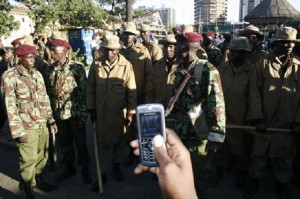
In this month's Radar Reports column, Musa Haron writes from Kenya on the backlash against the Somali community in the aftermath of Sunday's deadly attack on the town of Mpeketoni.
Interviews, New in Ceasefire - Tuesday, June 17, 2014 14:28 - 1 Comment
Politics">‘It’s the most unequal country in the world’: Rehad Desai on the future of South Africa Politics
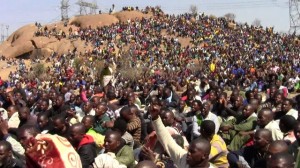 In 2012, thirty four striking miners were killed in South Africa's most notorious post-Apartheid massacre. Rehad Desai, filmmaker and academic spoke to Ceasefire's Usayd Younis about his new documentary 'Miners Shot Down' and the state of the country today.
In 2012, thirty four striking miners were killed in South Africa's most notorious post-Apartheid massacre. Rehad Desai, filmmaker and academic spoke to Ceasefire's Usayd Younis about his new documentary 'Miners Shot Down' and the state of the country today.
Ideas, New in Ceasefire - Monday, June 9, 2014 20:58 - 2 Comments
Comment">‘Nobody listened to me’: Blair’s dismissal of the anti-war movement has fuelled violent extremism Comment
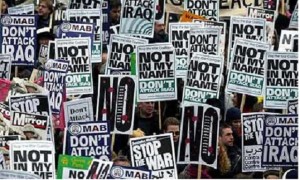 More than a decade on since the February 15 2003 protests, it is time to acknowledge that the UK government's refusal to heed the calls of the anti-war movement might have been directly responsible for fuelling violent extremism in the UK, Ian Sinclair argues.
More than a decade on since the February 15 2003 protests, it is time to acknowledge that the UK government's refusal to heed the calls of the anti-war movement might have been directly responsible for fuelling violent extremism in the UK, Ian Sinclair argues.
Books, New in Ceasefire - Thursday, May 29, 2014 18:51 - 1 Comment
Books">Review | Capital In The Twenty-First Century by Thomas Piketty Books
 Despite its heavily eurocentric outlook, Thomas Piketty's much heralded volume of the moment is an epic and groundbreaking study of national inequalities that deserves to be read by everyone, argues Rohail Ahmad.
Despite its heavily eurocentric outlook, Thomas Piketty's much heralded volume of the moment is an epic and groundbreaking study of national inequalities that deserves to be read by everyone, argues Rohail Ahmad.
New in Ceasefire, Special Reports - Tuesday, May 27, 2014 10:51 - 29 Comments
Politics">Tower Hamlets: The Last Outpost of the Raj Falls Politics
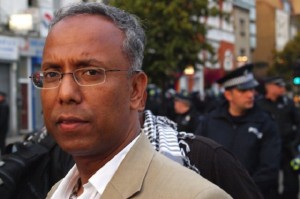 While most of the national coverage of Thursday's elections has been about the surge of UKIP, one of the most remarkable upsets has gone unnoticed: the re-election of Britain’s first elected Asian Mayor, Lutfur Rahman, in the face of a virulent campaign by the political and media establishment. Ashok Kumar reports.
While most of the national coverage of Thursday's elections has been about the surge of UKIP, one of the most remarkable upsets has gone unnoticed: the re-election of Britain’s first elected Asian Mayor, Lutfur Rahman, in the face of a virulent campaign by the political and media establishment. Ashok Kumar reports.
In Theory, New in Ceasefire - Monday, May 26, 2014 10:47 - 3 Comments
In Theory">Alain Badiou: Transcendence, Sets, and the Exclusion of Substance In Theory
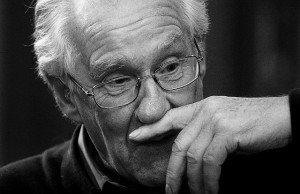 In the second installment of his ten-part series on Badiou, Andrew Robinson explains the specific claims of Badiou's philosophy: the necessity of a transcendent “one” for social order, the appeal to mathematical set theory, and the rejection of qualitative or “substantial” references in philosophy.
In the second installment of his ten-part series on Badiou, Andrew Robinson explains the specific claims of Badiou's philosophy: the necessity of a transcendent “one” for social order, the appeal to mathematical set theory, and the rejection of qualitative or “substantial” references in philosophy.
Ideas, New in Ceasefire - Wednesday, May 21, 2014 13:49 - 6 Comments
Comment">However well-meaning, the ‘Live Below The Line’ campaign is spurious and patronising Comment
 The 'Live Below The Line' campaign, ostensibly aimed at highlighting the plight of the poor, seems to have turned into yet another conduit for putting people who are already privileged in the limelight, argues Maya Oppenheim.
The 'Live Below The Line' campaign, ostensibly aimed at highlighting the plight of the poor, seems to have turned into yet another conduit for putting people who are already privileged in the limelight, argues Maya Oppenheim.
New in Ceasefire, Notes from the Margins - Tuesday, May 20, 2014 13:42 - 6 Comments
Notes from the Margins">‘No one is listening to us’: Britain’s Migrant Rebellion Notes from the Margins
 This month, Britain’s immigrant ‘detention estate’ has been rocked by one of the largest protests to date, yet another consequence of the climate of hatred, fear and racism so deeply embedded in Britain’s squalid current ‘debate’ about immigration, argues Matt Carr in his latest column.
This month, Britain’s immigrant ‘detention estate’ has been rocked by one of the largest protests to date, yet another consequence of the climate of hatred, fear and racism so deeply embedded in Britain’s squalid current ‘debate’ about immigration, argues Matt Carr in his latest column.
New in Ceasefire, Special Reports - Monday, May 19, 2014 12:55 - 0 Comments
Special Report">Germany: Protesting Hamburg’s ‘Danger Zone’ Special Report
 Facing the planned shutdown of Rote Flora, a long-running social centre, protesters in Hamburg took to the streets late last year - only to be met with the imposition of a draconian 'danger zone'. Creative responses to the zone were key to undermining it, however, argue Leoni Linek and Jakob Schaefer.
Facing the planned shutdown of Rote Flora, a long-running social centre, protesters in Hamburg took to the streets late last year - only to be met with the imposition of a draconian 'danger zone'. Creative responses to the zone were key to undermining it, however, argue Leoni Linek and Jakob Schaefer.
Books, New in Ceasefire - Friday, May 16, 2014 13:31 - 0 Comments
Books">Review | Until the Rulers Obey: Voices from Latin American Social Movements Books
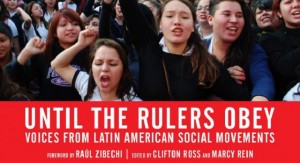 'Until the Rulers Obey', a newly published volume edited by Clifton Ross and Marcy Rein, provides an invaluable panorama of Latin America in movement, and should be required reading for all scholars and activists with an interest in the birth of another world in the region, argues Puneet Dhaliwal.
'Until the Rulers Obey', a newly published volume edited by Clifton Ross and Marcy Rein, provides an invaluable panorama of Latin America in movement, and should be required reading for all scholars and activists with an interest in the birth of another world in the region, argues Puneet Dhaliwal.

